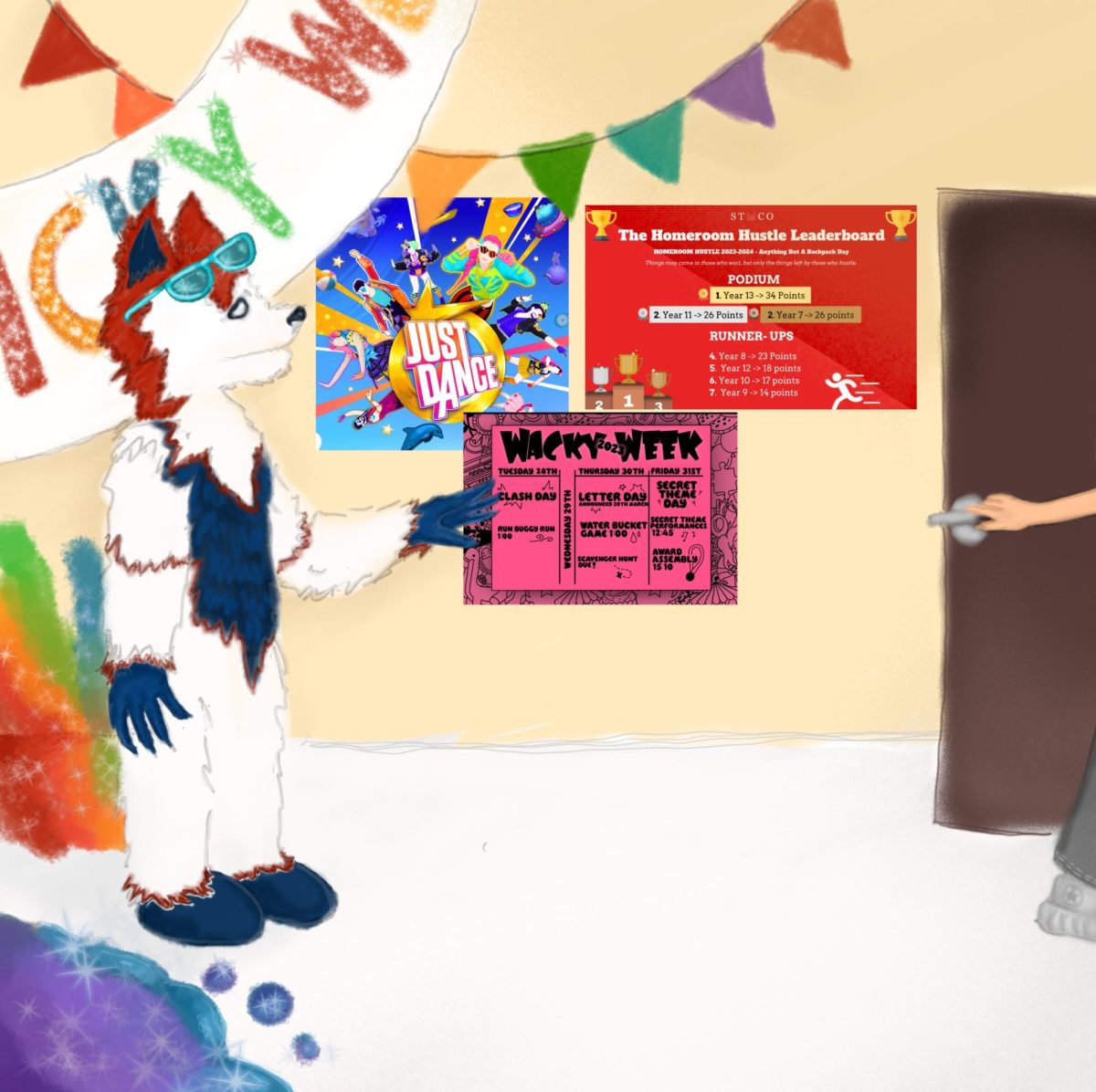The English department has recently introduced a new initiative: the lunchtime lectures. Held during lunchtimes every few weeks, the lectures are open to anyone in secondary school and are a great opportunity to engage with fascinating topics and with literature outside the curriculum.
Following the transformation of the library into the Impact Hub, the lunchtime lectures and reading nook aim to provide a space entirely focused on reading and literature. In an interview with Ms. Pearcy, she shared that the English department was “worried about the narrative that was being sent out to parents”, as what had been “perceived as a safe space and a space that really celebrated reading” now heavily focuses on business and entrepreneurship opportunities. And while the Impact Hub is very valuable in what it is trying to achieve for business and entrepreneurship, it may be overshadowing the value of reading. Furthermore, the English teachers have found that sometimes during recess and lunchtimes, there are some students, who may be shy or new, hiding in the bathroom or just wandering around the corridors and so opening the reading nook would provide “a quiet safe space where people could take some time out”.
Along with the reading nook in NS222, another occasion to engage with literature is during the lunchtime lectures which take place during Friday lunchtimes, around once every six weeks. So far, Ms. MacLeod has organised one about Wilfred Owen and war poetry, and Mr. McKee presented about Gothic fiction.
The two lectures have been quite different in their approaches, Ms. MacLeod focusing more on an emotional connection to the poet and the power of war poetry, while Mr. McKee covered the background of Gothic fiction after delivering a dramatic reading of Dracula by candlelight. In both cases, I found that we really got to see both Ms. MacLeod and Mr. McKee’s passion and interest in the topic they presented, and their unique way of presenting made it all the more engaging. We have previously learnt about war poetry and Wilfred Owen in Year 11, but I still found Ms. MacLeod’s lecture both compelling and thought-provoking because of that emotional connection she established and because of the way she related the topic to a more recent conflict. Meanwhile, the curriculum doesn’t cover Gothic literature (except potentially in the IB: my teacher chose Frankenstein as one of our texts), so Mr. McKee’s lecture was very insightful, as he covered the roots of the Gothic quite broadly.
Personally, I have really enjoyed both lectures so far, and I think that it is also just fascinating listening to someone talk about a topic that they have such deep knowledge of and that they are genuinely enthusiastic about. It is clear that the English teachers put a lot of thought and work into these lectures, and they even offer to share the resources they presented or reading lists related to the topic, so that students can explore these genres and themes further.
The next lunchtime lecture, prepared by Ms. Pearcy, will be held on Friday the 28th of February, on the theme of Dystopian fiction, giving another great opportunity to engage with literature that is not covered by the school curriculum. Then in March or April, Mr. Lloyd will lead a lecture about the
representation of the environment in literature, a very prevalent topic today, as while literature often celebrates the environment, it is now also often used to create a sense of urgency about the climate crisis and other environmental problems. The final lecture this year will be in May, looking at poetry about bees in celebration of international bee day.
While ISL offers a wealth of opportunities when it comes to extracurriculars, what I’ve realised as someone applying for English is that there aren’t that many academic options for extracurriculars for the subject. Therefore, these lunchtime lectures are a wonderful chance for students interested in potentially pursuing English in the future, but they are also a possibility for anyone to learn something new or perhaps even inspire someone to take English literature instead of language and literature for the IB. Ms. Pearcy said that the English teachers “do have that longer term aim to raise awareness of the study of English literature, but also just to celebrate the love of learning for learning’s sake”. After all, literature “says something about human experience, and you gain so much from that”.
From my experience, I can fully recommend for anyone to attend one of the lectures this year, and in case you don’t have anything to do during lunchtime, the reading nook is always open in NS 222!


